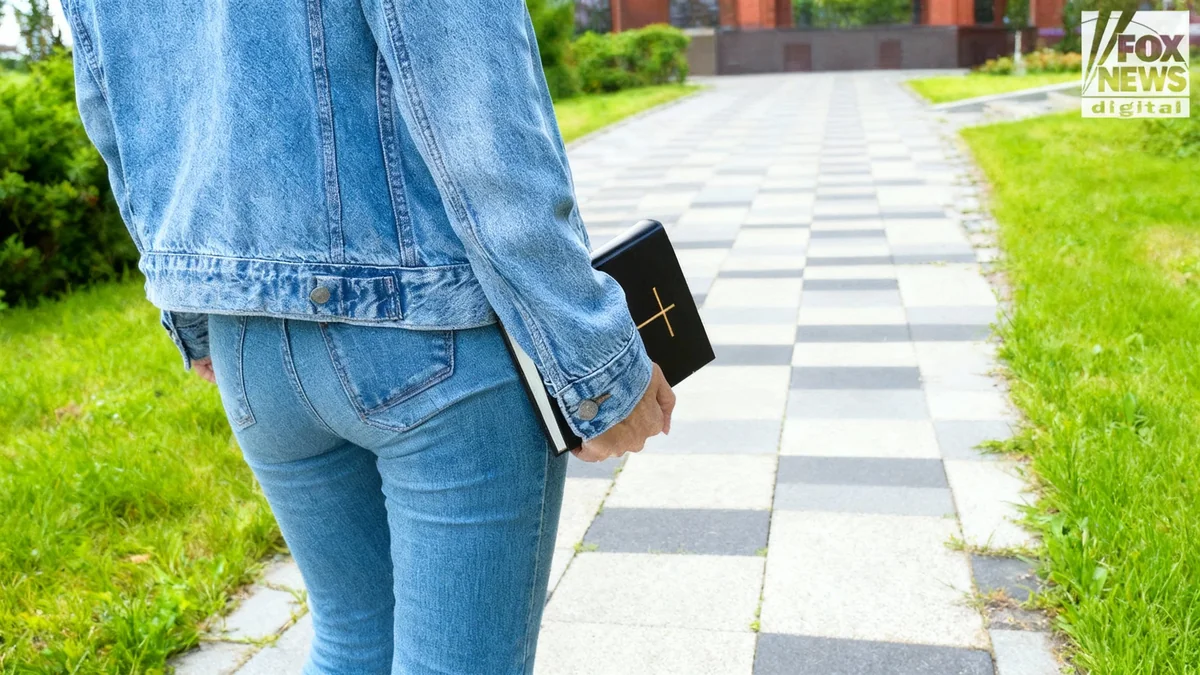A high school senior in Colorado Springs has successfully challenged her school district's policy on student expression, winning the right to paint a Christian-themed design on her reserved parking space. The Academy School District 20 reversed its ban on religious imagery following a legal challenge, allowing the student to proceed with her original artwork.
Sophia Shumaker, a senior at Rampart High School, will now be permitted to repaint her parking spot to reflect her faith. The resolution comes after her initial design, inspired by a biblical parable, was rejected by school administrators in August.
Key Takeaways
- A Rampart High School senior's religious parking space design was initially rejected due to a district policy banning such imagery.
- The student, Sophia Shumaker, sought legal assistance from the First Liberty Institute, which argued the policy violated her First Amendment rights.
- Academy School District 20 has since revised its policy, allowing students to include religious themes in their artwork for the remainder of the school year.
- The new guidelines still prohibit offensive language, or references to weapons, drugs, or gangs.
A Dispute Over Student Expression
The issue began at the start of the school year, when seniors at Rampart High School were invited to participate in a tradition of decorating their paid, reserved parking spaces. Sophia Shumaker submitted a design featuring a shepherd, sheep, and a staff, which was intended to illustrate the parable of the lost sheep. Her artwork also included a reference to the Bible verse 1 Corinthians 13:4.
School officials denied her request, citing a district policy that prohibited religious imagery on school property. Shumaker was told to submit a different, non-religious design. She expressed disappointment, stating that her faith is a core part of her identity.
"I was honestly upset just because other people were getting to express themselves how they wanted and Christianity is my whole identity and I just really wanted to express that," Shumaker said in an interview.
Feeling that her right to self-expression was being unfairly limited, Shumaker decided to seek outside help to challenge the school's decision.
Legal Challenge and First Amendment Rights
Shumaker contacted the First Liberty Institute, a legal organization specializing in religious freedom cases. The group sent a demand letter to the school district on October 22, arguing that the ban on religious content in student artwork was unconstitutional.
The letter, addressed to Superintendent Jinger Haberer and Principal Meghan Sanders, contended that the parking space designs constitute private student speech, not government speech endorsed by the school. Therefore, prohibiting Shumaker's design based on its religious viewpoint amounted to discrimination.
Private vs. Government Speech in Schools
The distinction between private student speech and government speech is a key element in First Amendment cases involving schools. Courts have generally held that schools cannot censor private student expression simply because it is religious, as long as it does not disrupt the educational environment or infringe on the rights of others. The school's allowance of other forms of personal expression in the parking spaces strengthened the argument that the art was private speech.
First Liberty's legal team also pointed out that other schools within Academy School District 20 had seemingly permitted Christian symbols, such as crosses, in their own parking space art. This inconsistency was used to argue that the district's policy was being applied arbitrarily.
District Reverses Policy
In response to the legal challenge, Academy School District 20 confirmed it would change its policy. In a statement, the district announced that for the rest of the current school year, it will permit artwork based on a student's viewpoint, including religious themes.
Seniors who wish to update their designs under the new guidelines will be allowed to repaint their spaces upon request. The district emphasized that all designs must still adhere to other existing rules, which prohibit offensive or rude language, as well as imagery related to drugs, weapons, or gangs.
The district's statement noted the policy change was intended "to keep things clear and fair for all students." This decision directly allows Sophia Shumaker to proceed with her original Christian-themed design.
Keisha Russell, senior counsel for First Liberty Institute, praised the outcome. "The First Amendment protects students’ private expressions of faith in public schools," she stated. Russell expressed hope that the district would make the policy change permanent for future students.
A Precedent for Student Rights
This case in Colorado Springs is not an isolated incident. In August, a high school senior in New York also successfully challenged a similar school policy that banned religious designs on senior parking spots, highlighting a growing trend of students asserting their First Amendment rights in public schools.
Russell believes Shumaker's willingness to stand up for her beliefs serves as an important example for other young people across the country.
"It really shows other young people around the country how important it is to stick up for what you believe in," Russell commented. "And I just want to encourage all young people to do the same."
For Shumaker, the victory is a meaningful affirmation of her identity and her right to express it. She credited her conviction to speak out in part to the influence of conservative commentator Charlie Kirk, who was assassinated in September while speaking on a university campus.





